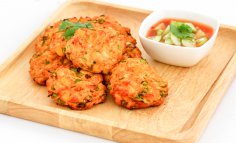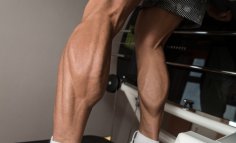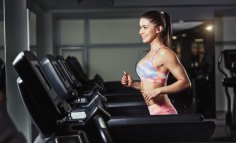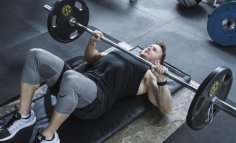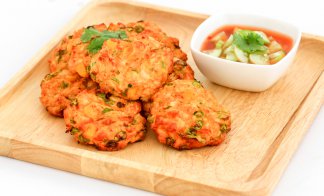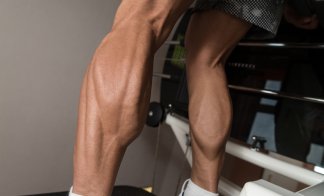Nærmere en gresk gud kommer du ikke

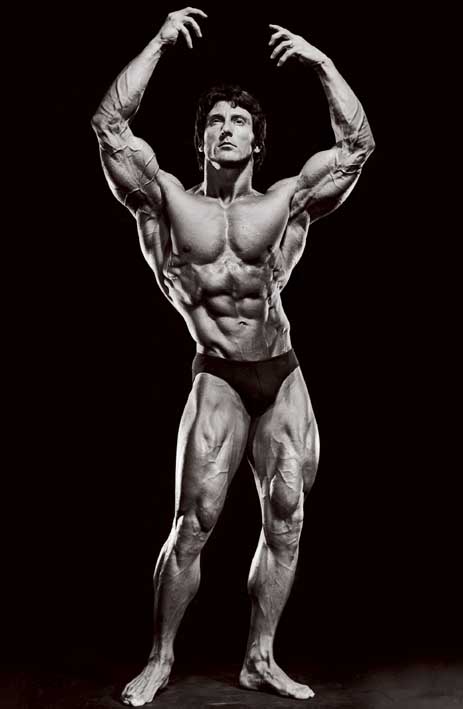
Her er et intervju til fra 1993.
Frank Zane Interview
MUSCLEMAG Magazine OCTOBER 1993 Star Profile
by T.C. Luoma
That was my first impression of Frank Zane. He was polite, as Mr. Spock would be, and his
answers were forthright, honest, and above all, logical. I kept imagining that his right eyebrow
would suddenly arch up and he'd look at me quizzically much the same way as Leonard
Nimoy's pointed-eared character became famous for.
At first Frank Zane's answers about his past were slow in coming as if he had to access that
part his memory files. He seemed a little bored by it, maybe because those types of questions
didn't particularly interest him. He also isn't the kind of guy you feel comfortable in asking what
his favorite color is, what he likes to eat, or any of those typical Star Profile-type questions.
He'll answer you alright, but you get the idea that he feels that there are far more fascinating
things in life to ponder. That became evident when I began asking him questions about
concepts, or ideas -- questions with a little meat on them. He drank those questions up
quickly, drank them as the cactuses that abound on his Palm Springs hideaway, otherwise
known as "The Zane Experience," drink up water. It was then that this three time Mr. Olympia
winner ( '77, '78 and '79) opened up and began to show what I perceived to be "human"
emotions.
In retrospect I realized that my perceptions about him were a little off-base. It wasn't that he
was bored by my questions - what I thought was a lack of was simply his calmness, his
oneness with the universe, so to speak. Talking to Zane is like drinking a glass of warm milk
after a jacuzzi -- relaxing. It's almost like his voice is lulling you, hypnotizing you into forgetting
your anxieties. Interestingly, that's one of the things he teaches at his Zane Experience through
a variety techniques, including brain-wave synchronization. Excuse me? Yeah, you heard me
all right, but it's not really as weird as it sounds. In fact, it makes a whole lot of sense, just like
Frank Zane.
MMI: Where and when were you born?
FZ: I was born in Kingston, Pennsylvania in the end of June in 1942.
MMI: How long did you live there?
FZ: Well, I grew up there, and I attended high school there. I attended Wilkes University for four
years in nearby Wilkes-Bane and graduated in 1964.
MMI: What kind of a kid were you? Were you a homebody or were you active?
FZ: I was pretty active. I liked sports. I used to play baseball, football, and even basketball a lot.
MMl: What did you want to be when you grew up?
FZ: I was strongly urged to get involved in electronics from an early electronics, science,engineering --
because my father was an electrician and he also a radio and television repairman.
MMI: How did you feel about all this?
FZ: I like science and all that, but I wasn't sure if that was exactly what I wanted to do, so when I
registered for college, I registered as an electrical engineer -- and I didn't even know what electrical
engineers did! I switched into chemistry after just a week. I knew what that was, at least.
MMI: What kind of neigborhood did you grow up in?
FZ: It was a rough neighborhood, but peaceful sort. I wasn't interested in fighting anybody, but my
brother was precocious -- he was two years younger than me - and always competing with people who
were my age. He was always making them angry and fights would start, so I figured that I'd better arm
myself.
I discovered weight training and that sort of helped protect both of us. I was fourteen then.
MMI: Who were your heroes when you were a kid?
FZ: Well, I read bodybuilding magazines, but I never really picked anybody out until I saw the Steve
Reeves movies. I had been training for three or four years by then. That was the kind of look I was
starting to get anyway.
MMI: I mean before bodybuilding. Did you have any baseball heroes, or cowboy heroes, or anything
like that?
FZ: I liked the Chicago White Sox. I had my cap with "Sox" written across it. I also liked the Detroit
Lions football team, but I was interested in solitary pursuits like archery. I used to spend a great deal of
time with that.
MMI: Does that mean you didn't have many friends?
FZ: No, I had friends, but I liked doing things by myself, because I could do a better job. I wasn't
anti-social. I got interested in things I could do on my own, like making things with my hands. One of
the earliest toys I got when I was young was an erector set, and I became fascinated with shapes and
building things. I don't know where these ideas came from, but when I was quite young I was building
things like skyscrapers and Ferris wheels out of erector set parts. I just had a good imagination.
MMI: What kinds of things were you good at in school?
FZ: I was particularly good at math and science. I graduated first in my class in high school. I got the
chemistry award and I was right up there in mathematics. I ended up getting a scholarship to Wilkes
University.
MMI: Were you in any organized athletics in high school?
FZ: There were 60 in our graduating class, and they had football and basketball. I wasn't really that
impressed by the teams -- they were losing teams and they were negative -- but my brother was very
gung ho about going out. He went out for football when I was in my junior year, so I did, too. We both
made the starting lineup. They all thought that lifting was pretty bad and that I'd get muscle-bound.
Nobody did it, and everybody warned me against it. But I couldn't wait until the football season was
over so I could get into bodybuilding. I really got into weight training very heavily during my senior
year in high school.
MMI: What was the most memorable thing about growing up for you?
FZ: Well, it was probably trying to prove myself to people, that what I was doing was worthwhile.
When it came to weight training especially, everybody thought that was a waste of time, except maybe
for about four people I met up until the age of eighteen, and they were powerlifters. Actually, that was
before powerlifting. They were called odd lifters back then, and the three lifts we did were the curl, the
bench press, and the deadlift.
MMI: Why did you decide to become a teacher?
FZ: When I graduated and went to college and got into chemistry, all that changed, because I had no
time to train. It was extremely hard and there were long lab. hours. For two years it was like that. After
two years I decided I really didn't want to get into the chemical industry anyhow, and teaching seemed
like a good idea. I was motivated to be a teacher through the poor teachers that I had throughout my
life. I'd say, "Geez, this guy's a teacher? I can do better than that right now." So I went into teaching
chemistry. Besides, I wanted a job that would allow me to train. By this time training was my top
priority. I had to have a job that allowed me to support myself, and that would allow me to live where I
wanted to. The other thing that motivated me to go into teaching was the draft. I saw my friends being
drafted and being sent to Vietnam. I sure as hell didn't want to go over there, so I got an occupational
deferment as a teacher, and I taught math for thirteen years.
MMI: Where was your first teaching job?
FZ : I got a job near Reading, Pennsylvania teaching math to Pennsylvania Dutch kids. There was only
one chemistry teacher per school, so I opted for teaching high school math. I even ended up starting a
weightlifting club. There were three foundries in town, and one of the foundries donated thousands of
pounds of weights they made plates for York Barbell Company. We had all kinds of
equipment, and I trained there. This was in 1964-1965. The second year I taught in New Jersey, and
then I moved to Florida and taught there for three years -- met my wife there, got married in 1967, and in
'69 we moved to California.
MMI: What kind of teacher were you? How do you think your students would have described you?
FZ: (Pausing) Actually... I can't categorize myself in any one way. I was different at all times. I had good
rapport with them, and they respected me because of bodybuilding, especially when I came
to California. They appreciated bodybuilding -- even the roughest kids. I had occasions to go into the
inner city and give talks and demonstrations on bodybuilding, and they respected the body --
they were very physically oriented.
MMI: How long did you live in the Venice area?
FZ: I lived in Santa Monica from 1969, all the way up to 1985, but only part-time from 1980 to 1985 since
I split my time between Palm Springs and Santa Monica.
MMI: Why did you pick Palm Springs to establish your Zane Experience (formerly the Zane Haven,
where bodybuilders come to learn more about their sport from Frank)?
FZ: When I was driving out, I liked the scenery, for one thing. When I started coming to Palm Springs, I
felt it was a big relief from all the hustle and bustle of Los Angeles, and I always felt I
could do a better job when I was able to get away from things and concentrate rather than to be lost in
the crowd -- to be battered back and forth between components and get caught up in little
games.
MMI: How did you meet Christine?
FZ: Her younger sister was a student where I taught (in Florida) and she introduced me to her. And
then we started to go out.
MMI: You two have been married pretty long by any standards, but particularly bodybuilding
standards. What's the formula for a long-lasting relationship?
FZ: We'll have been married 26 years this December. We weren't both competitive bodybuilders,
although Christine dabbled in it in the early years. She was never really that interested in it - she just
did it to travel. She was a tremendous motivator for me when I was competing and she helped me a lot.
She was also my photographer, and I think you need somebody like this to be successful. A lot of
times these bodybuilding marriages don't last because bodybuilders tend to be concerned with their
bodies -- their own problems, their own issues - but my wife isn't so much like that. We've always
communicated, and we're the same in a lot of ways. People sometimes say, "Marry your opposite," but I
think you should marry yourself, to some extent.
MMI: Tell us about the Zane Experience. How is it different from when it was called the Zane Haven?
FZ: Well, we used to have a hotel where we would have people stay with us. It started out as a five-day
program. In 1988 we moved to a different location and changed the program. Now everything's done
privately, one on one, and people don't stay here. We work primarily with private clients who live here
(in Palm Springs). People have one session, usually 2 to 2-1/2 hours long, that's basically for people
who just want to get a program together. We also have a program where people go for three 2-1/2 to
3-hour sessions. And that's the same program we ran before, at least the instructional part of it.
MMI: What's the idea behind the Zane Experience?
FZ: The main concept is to help people get the most out of their training by giving them what I feel
would benefit them at this stage of their lives. Most people are either doing too much, or they may not
be doing enough, or they're doing it incorrectly, and they're almost always eating wrong. I introduce
them to topics like stress management, deep relaxation techniques and brain- wave synchronization.
MMI: Do you miss all the publicity that you were once accustomed to?
FZ: It seems to be the all or nothing phenomenon. When I was winning the Olympia, it was so much
attention that I didn't know what to do with it. When I retired, I couldn't do anything to get publicity,
and now, finally, after ten years of that, people are starting to notice again because I'm still in good
shape. Actually, in some ways I'm in as good shape as I was when I was competing. I'm still working on
that. This year I'll be 51, and I still want to be better this year than I was last year and last year was the
best shape I had been in since I retired from competition. So I'm still motivated, and I'Il do anything it
takes to get like that, short of taking drugs and risking my health. I have the kind of physique that the
average person is interested in, so I tend to get more offers for commercials and photos and projects
when I'm in great shape.
MMI: Do you train differently now than when you were competing?
FZ: My training is not that much different from what it used to be. It's still competition training, and I'm
training three days in a row and resting the fourth day. I also come back in the evening and do extra
abdominal work, along with an extra half hour on the stationary bicycle. I wear one of the brain-wave
synchronizers on the stationary bike, and it transports me into another realm. I see a light show.
MMI: If you were just starting out in bodybuilding today, would you even want to compete, given the
state of the sport?
FZ: Well, if I were just starting out, I wouldn't have all the facts, and I'm pretty smart now, I think, in
terms of what's going on in bodybuilding. Knowing what I know now, I would not compete -- I would do
something else. But not knowing what I know now, I sure as hell would compete. I'd do everything and
I'd probably make faster progress.
MMI: Is there any other career you think might have been interesting?
FZ: Possibly a medical doctor.
MMI: Do you read medical journals and try to keep np with new developments?
FZ: Well, I do. I can understand research because I got my master's degree in experimental psychology
so I can understand literature. I also have a chemistry background, and I'm versed in all that stuff --
medical terms, psychological, physiological stuff, and also physics. I don't have a tremendously deep
areas. Right now I'm interested in the use of sound to alter states of consciousness -- to relax, energize
or motivate through the use of sound or even the human voice. I studied that as part my master's degree
and got certified as a hypno-therapist. These audio tapes I created are based on all those principles. An
audio tape is a much better tool for practicing hypnosis, or, if you will, self hypnosis, because you
actually do it to yourself. I have a recording studio out here, and I make special audio tapes. I'm also
interested in how light impulses affect brain-wave activity, or translating voice inflection into light
impulses. I've been working on that lately. I've been able to produce tape recordings that hook up into
special instruments that allow you to hear the voice in different ears, and because of the intonation of
the voice, it sets up a complex delta- wave light pattern which is the slowest wave pattern you can have.
It's what the brain is going through when you're releasing growth hormone. It's tremendously relaxing.
MMI: If you could have anybody, living or dead, visit the Zane Experience, who would it be?
FZ: The Buddha, probably.
MMI: Really? Are you Buddhist, or somebody who's just interested in Eastern philosophy?
FZ: I'm only a Buddhist if a cloud is a member of the sky (tongue only partially in cheek). I don't think
answers are that important. I think questions are the most important thing in life.
MMI: Do you spend a lot of time studying Easten philosophy?
FZ: I don't study as much as I used to. There are different sources of knowledge. A lot of my ideas are
directly intuitive now, from meditative-type stuff -- the mental technology, the light- sound machine and
audio tapes. I go into periods of deep relaxation and I solve all sorts of problems and come up with creative
solutions and even inventions. They come to me as visual images. Also, I write that way. I wake up with
words and ways of saying things. I'm very much into dream life, too. If I have any kind of problems or
emotions that are enough to affect me, I always have to dream about it -- that resolves the problem. I can
honestly say that I live my life by those dreams. There's this deep source of inner knowledge that's there,
and I just have to stay in touch with it.
MMI: You seem very spiritual and in touch with metaphysical things, but would you say you're religious?
FZ: I wouldn't say that I'm religious. I don't practice any form of religion, except for bodybuilding. I'm very
religious about that.
MMI: Do you think today's bodybuilder has evolved at all, not just physically, but emotionally or
mentally?
FZ: It might be unfair to make a judgment of them, based on the amount exposure I've had to advanced
bodybuilders in the last ten years. If I had to, I'd say no, based on what I've seen in the bodybuilding
magazines and what's emphasized. But I have been impressed with some of them by talking to them and
seeing how sharp they are. For example, I was impressed by Kevin Levrone. He's an interesting, funny guy,
and he's intelligent, but just looking at him you might say, "This guy's a monster -- he can't know
anything." Stereotypes are working in everybody's minds, even mine, and so bodybuilders are really given
unfair treatment based on their appearance. They don't necessarily deserve that treatment but because they
work very hard at what they do, but they set themselves up for alot of this stereotyping and ridicule by
dressing and looking the way that they do.
MMI: they should tone it down in public and be a little more modest. That way you don't bring criticism on
yourself. You set an example. I think today's bodybuilders should practice a holistic lifestyle. Bodybuilders
need to concentrate in a lot of different areas if they want to take their sport to the maximum. They really
need to take advantage of other areas like psychology, biochemistry, kinesiology, and equipment
technology -- they need to know all of this stuff. They need to know about posing, and sculpture, and art,
and the more they know, the better they are.
MMI: You seem to live very much in present.
FZ: I choose to live as much in the present as I can. Now that's almost impossible. It's not easy, because
we're not living in the present. The present is a fleeting moment - it keeps slipping into the past. We're living
in the past... we're living in what just happened.
MMI: I have to ask you some more mundane Star Profile-type questions now. For instance, would Frank
Zane sit around and watch a comedy on TV?
FZ: Sure. I watch some television most nights. My favorite show is Northern Exposure. There's more to it
than meets the eye -- it's very metaphorical and I like things like that. But there's a lot of mindless shit on
TV. It's just awful. It could be such a good medium. I think there should be more educational programs
available entertaining but educational. But there's nothing, nothing. If something's good, it doesn't fit a
formula, and then it doesn't last long on television. They're all afraid to try something new because they
might lose money. They pound everything to death.
MMI: Do you like to watch movies?
FZ: Yes. We see a lot of movies. It's one of our major forms of entertainment. I like anything that's good and
different. I don't like a lot of violence in movies, but if it's going to be violent, I think it should be realistic
violence. In the Amold movies, for example, it's pretty realistic violence. It shows what actually happens
when people shoot guns. In one of his movies, after a guy gets killed, Amold uses him as a shield. I mean,
bullets can actually kill you.
MMI: Do you have anybody that you'd consider a favorite actor or actress?
FZ: I would prefer to see talented people who are unknowns and whom you don't see as a particular
personality in a role. I'd rather see them as the character that they're portraying. I like Al Pacino as an actor.
He's good at what he does, but it's hard not to see him as the Godfather -- he was so memorable in that.
MMI: What kinds of things to you like to do?
FZ: I like discovering things that I don't know about my own life -- becoming aware and conscious of those
things that I never knew about myself before. In other words, making the unconscious conscious in my
own life. That's all part of the growing process. I also like discovering new things, new ways to train, or new
exercises, and I'm very much involved in nutrition as well. I'm very curious to see what the possibilities of
my body are. I also like thinking of new ways to train, or developing new pieces of exercise equipment, like
my leg blaster.
MMI: Where do you see yourself in ten years?
FZ: I can only see myself a year at a time. I can't see ten years. It's not real. It's sort of nebulous. I'm talking
about really seeing it in my mind's eye. I'm not just talking about some sort of vague conception of what I
might be like. I have goals, but you know, I really have no idea of how these things that I like, that are my
goals, will happen, because if I give them long enough, they always do. So I can't be ultraspecific and say
that this will be in ten years.




